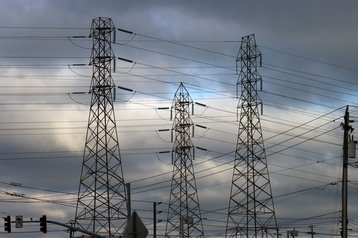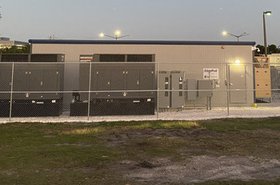US electric utilities are predicting a surge in power demands caused by data centers and generative AI, according to a report by Reuters.
Reuter’s analysis said nine of the top ten US electric utilities attributed customer growth and demand to data centers. Last year, only two of these companies referenced data center growth in their company forecasts.
Many of these companies are now revising capital expenditures to reflect data center demand and growth.
Florida-based NextEra Energy said it had data centers in its project queue that would use more than 3GW of power.
Jim Lydotes, head of equity income for Newton Investment Management, said: “The growth is going to kick in faster than it has in decades.”
US energy provider Southern Co expects data centers to propel its electricity sales to six percent year-on-year from 2025 to 2028 - an increase from predicted growth of 1-2 percent annually through next year. The company’s Power Business unit in Georgia is expected to grow by an unprecedented 9 percent a year.
Executives from Ohio-based American Electric Power said the company’s retail customer demand grew 2.5 percent in 2023, much faster than its previous 0.7 percent projection. Once again, this was attributed to data center growth.
According to Morgan Stanley research, power use from data centers is expected to triple globally from less than 15TWh in 2023 to 46TWh this year.
Consulting firm McKinsey added that power demand from IT equipment in US data centers will reach more than 50GW by 2030. Last year, the firm predicted power demand would reach 35GW by the decade's end.
The growth has raised concerns that the US electric utility industry will not respond to the rise in power demand.
“What we’re seeing in the market is that these projects are not coming online fast enough to meet the local demand for the data centers,” said Rystad Energy analyst Geoff Hebertson.
According to data from Lawrence Berkeley National Laboratory, the demand for power generation swelled from 2,000GW in 2022 to 2,600GW in 2023. The queue of projects trying to connect to the grid is expected to grow.
State legislators are concerned about data centers straining power grids, carbon emissions, and failures to boost economies.
For example, the Georgia Senate in the US voted to suspend tax breaks for data centers, saying businesses were not creating enough jobs to fuel the economy and were straining the region’s grid.



